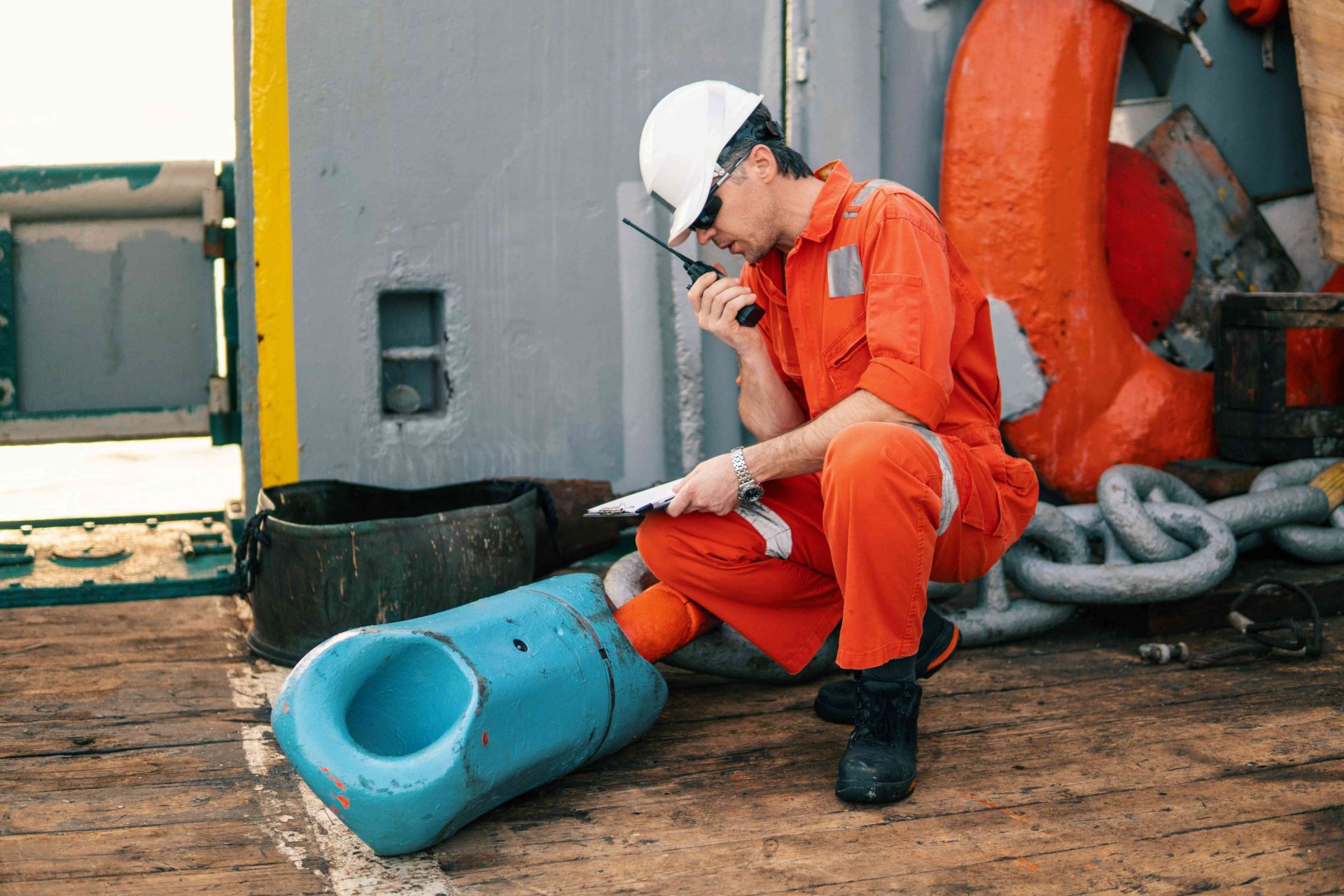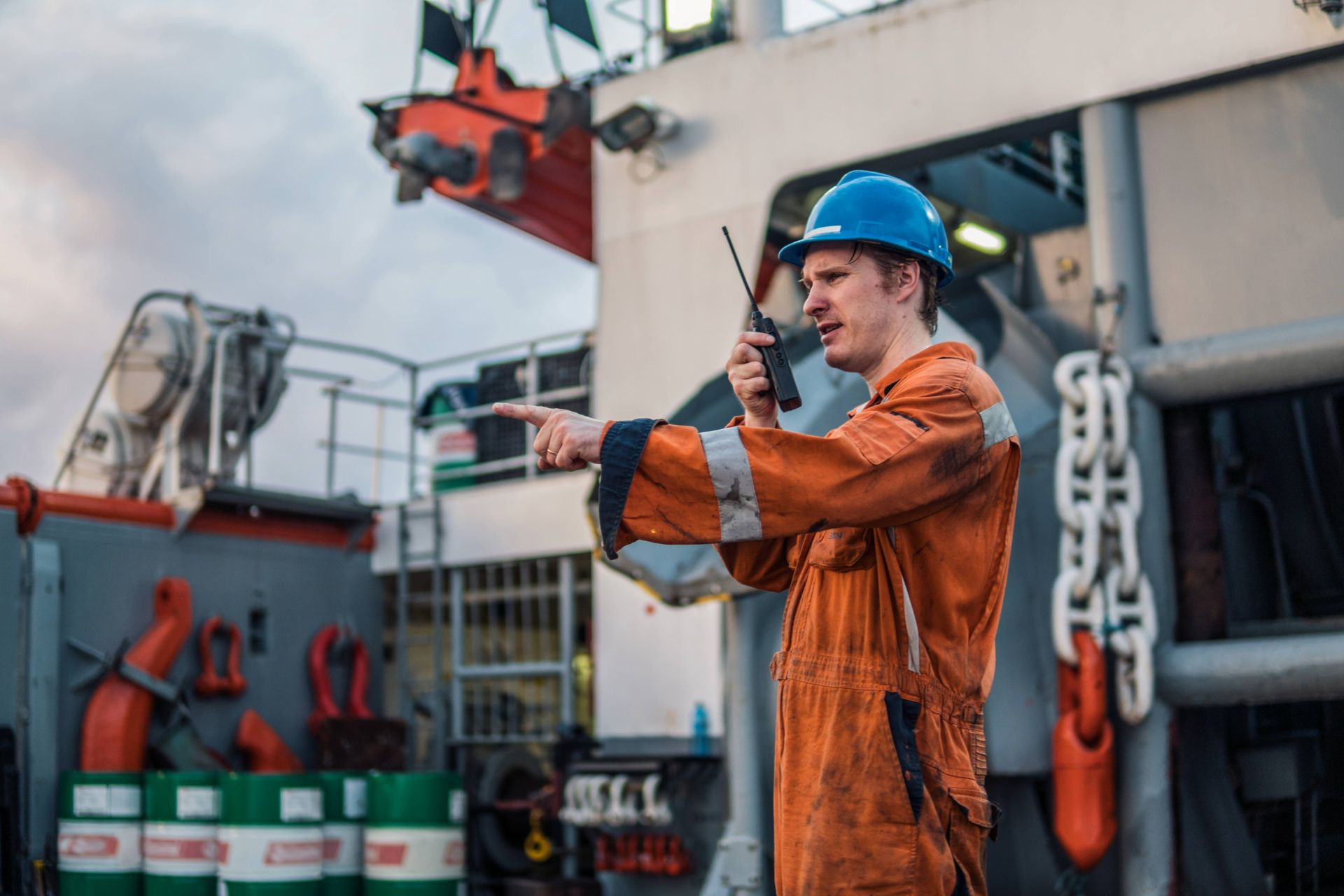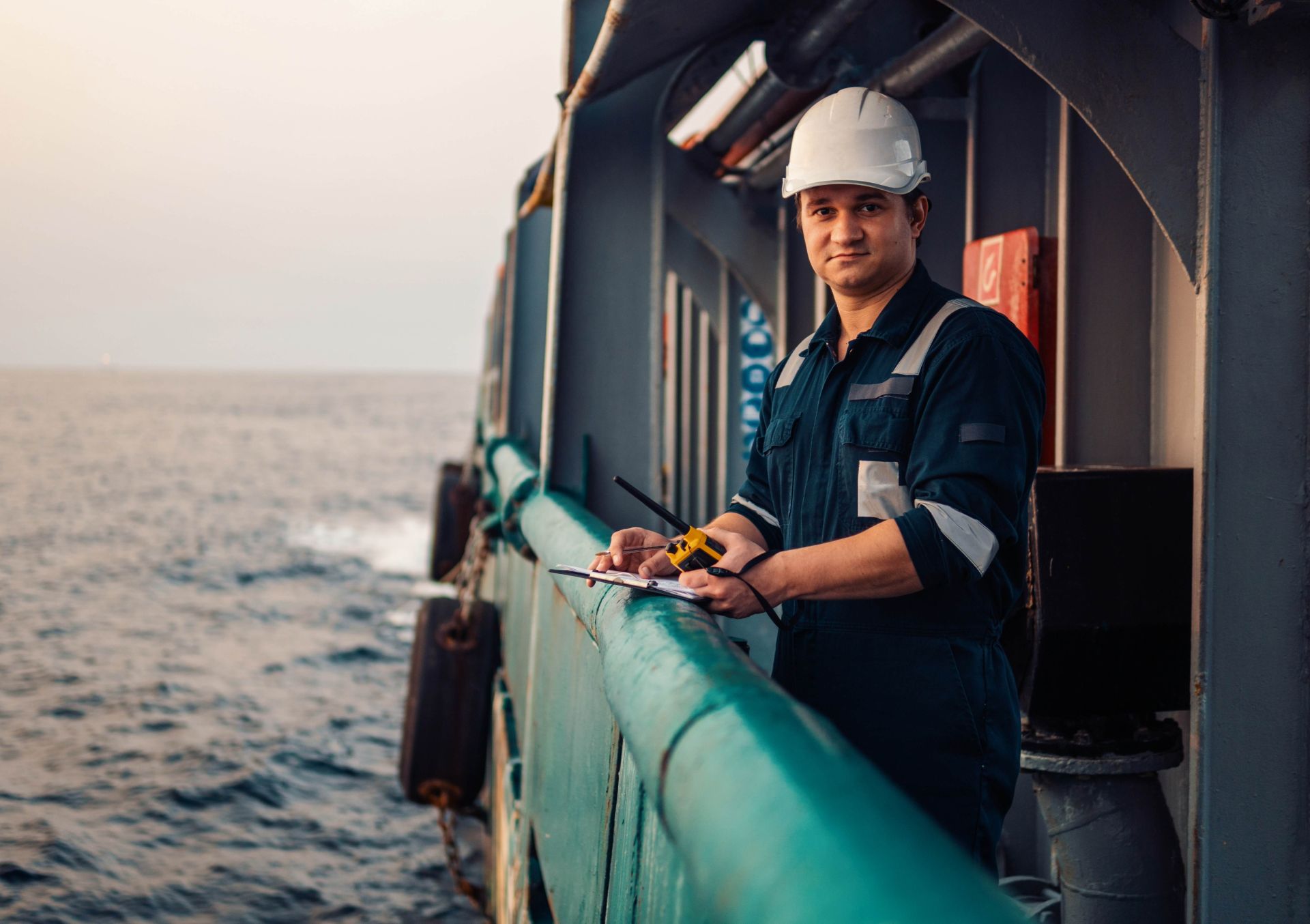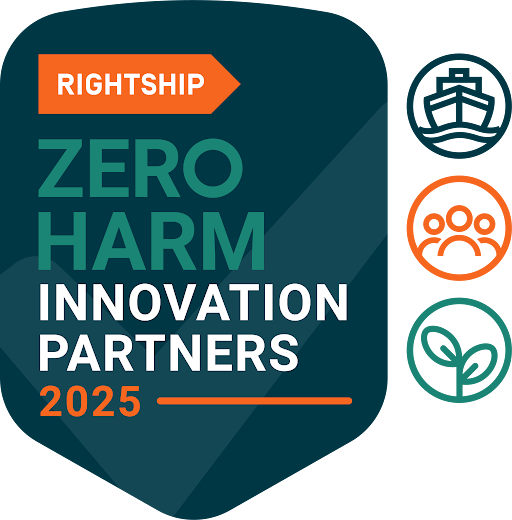5 Key Factors in Achieving Maritime Sustainability Through Crew Training
Introduction: Maritime Sustainability – A Growing Priority
As global efforts to combat climate change and reduce environmental degradation intensify, the maritime industry is under increasing pressure to adopt sustainable practices. Shipping accounts for nearly 90% of global trade, making it one of the most significant contributors to environmental impacts such as carbon emissions, marine pollution, and energy consumption.
Factor 1: Waste Management Training for a Cleaner Ocean
Minimizing Pollution through Proper Waste Handling

Waste management is one of the most immediate and impactful areas where crew training can significantly contribute to environmental sustainability. Ships generate various forms of waste, from food waste and plastics to hazardous materials like oils and chemicals. When these materials are not properly managed, they can severely pollute the oceans, harming marine life and ecosystems and contributing to long-term environmental degradation.
Cargo Residue Disposal
Beyond general waste, cargo residues present a unique environmental challenge in the shipping industry. When not correctly managed, residual materials from cargo operations can pose severe risks to the marine environment. Cargo residues are particularly relevant for ships carrying hazardous or bulk cargo, such as chemicals, oil products, or bulk commodities. Improper disposal of these residues can lead to sea contamination, putting marine species and habitats at risk.
Long-Term Benefits of Waste Management Training
Waste management training provides both immediate and long-term benefits for maritime operations. In the short term, it ensures compliance with environmental regulations and prevents pollution incidents that could lead to hefty fines and damage to a company’s reputation. In the long term, consistent waste management practices contribute to cleaner oceans and healthier marine ecosystems, which benefit the global environment and future generations.
Factor 2: Energy Efficiency and Reducing Emissions
Fuel Optimization and Emission Reduction
Reducing emissions is a cornerstone of maritime sustainability, and it’s becoming increasingly urgent due to stricter international regulations. The shipping industry is a significant contributor to global emissions, mainly sulfur oxides (SOx) and nitrogen oxides (NOx), which contribute to air pollution and climate change. To prevent this, the International Maritime Organization (IMO) introduced the 2020 Sulphur Cap, a regulation that limits the sulfur content in ship fuel to 0.5%, a significant reduction from the previous limit of 3.5%.
Through these courses, crew members learn how to:
- Optimize fuel use by managing engine operations and fuel types.
- Conduct emissions monitoring and ensure compliance with sulfur emission limits.
- Implement energy-saving practices such as optimizing speed, using alternative fuels where available, and improving route planning to reduce unnecessary fuel consumption.
By training crew members on these techniques, maritime companies can significantly reduce their ships’ fuel consumption, directly cutting down on harmful emissions and contributing to a cleaner environment. Energy efficiency benefits the environment and has substantial financial benefits, as optimized fuel consumption leads to lower operating costs.
Reducing Volatile Organic Compounds (VOCs)

Another critical aspect of emission reduction in the maritime industry is controlling volatile organic compounds (VOCs). VOCs are gases emitted from certain solids or liquids, including fuel and cargo. In the context of shipping, VOC emissions can occur during loading and unloading operations, fuel transfer, and from the cargo itself (particularly if it’s oil or chemicals). These compounds can contribute to air pollution, and long-term exposure can harm both the environment and human health.
Specific operational procedures must be followed to mitigate VOC emissions, and crew members must be properly trained in handling and reducing these emissions. The VOC Training course is designed to give crews the tools they need to limit VOC emissions. This training includes:
- Best practices for handling cargo to minimize emissions.
- Procedures for safely transferring fuel to reduce the release of VOCs into the atmosphere.
- Understanding the environmental impact of VOCs and the importance of controlling these emissions to ensure air quality and protect marine ecosystems.
By reducing VOC emissions, ships contribute to cleaner air, which benefits both the environment and the health of port communities where emissions can be concentrated. Furthermore, many of these practices also align with fuel optimization strategies, creating a dual benefit for the ship’s overall environmental impact.
Long-Term Impact of Energy Efficiency and Emission Reduction Training
The long-term benefits of energy efficiency and emission reduction training are twofold. First, reducing emissions helps the maritime industry meet its sustainability goals by complying with international regulations, such as the IMO’s environmental mandates. Second, energy-efficient operations lead to cost savings for shipping companies by reducing fuel consumption and optimizing vessel performance.
Read More: September 2024 Maritime Insights: Monthly Health and Safety Bulletin
Factor 3: Emergency Response and Environmental Preparedness
Preparedness for Environmental Hazards
In the maritime industry, the unexpected is often inevitable. From oil spills to hazardous cargo leaks, environmental emergencies can occur at any time, and the consequences can be devastating. When these incidents happen, the speed and effectiveness of the crew’s response are crucial in minimizing environmental damage. Proper interference makes emergency preparedness training an indispensable part of sustainable maritime operations.
- Recognize potential environmental hazards in their day-to-day operations.
- Respond effectively to spills, leaks, and other emergencies by using containment and mitigation techniques.
- Use emergency response tools and procedures to manage crises safely and in compliance with environmental regulations.
A significant component of this training involves training crew members on how to prevent spills and leaks in the first place. By understanding how minor lapses in operational procedures can lead to environmental emergencies, crews can adopt preventive measures that help avoid accidents altogether. For example, knowing how to handle and transfer fuel correctly can prevent leaks, while regularly inspecting and maintaining equipment can reduce the risk of mechanical failures that lead to spills.
Compliance with Environmental Laws during Emergencies

In addition to the practical skills needed to address emergencies, it is equally essential that crews are familiar with international environmental regulations like MARPOL (International Convention for the Prevention of Pollution from Ships). These laws are designed to ensure that vessels operate in a way that minimizes environmental damage, particularly during emergencies. MARPOL outlines protocols for responding to spills, leaks, and other hazards, ensuring that vessels are held to strict environmental standards, even in the midst of a crisis.
During emergencies, adhering to these regulations can be challenging due to the high-pressure nature of the situation. This is where training becomes crucial—crew members need to be familiar with these protocols so that they can comply with them under stressful conditions. For example:
- MARPOL regulations specify how oil spills should be contained and reported. Crews trained in these procedures will know how to manage oil spill clean-up efforts in a way that prevents further pollution and complies with international standards.
- Training also covers proper communication with port authorities and environmental agencies during emergencies, ensuring that incidents are reported swiftly and transparently.
By understanding and adhering to these regulations, crew members help prevent legal and financial consequences that can arise from non-compliance. Moreover, a quick, well-coordinated response to environmental emergencies protects the ocean and the shipping company’s reputation and operational standing.
The Role of Technology in Emergency Preparedness
In modern maritime operations, technology plays an increasingly important role in emergency preparedness. For instance, simulation training offers a hands-on, immersive way for crew members to practice responding to environmental hazards in a controlled environment. These simulations can replicate oil spills, fires, or hazardous material leaks, allowing crew members to test their response skills and fine-tune their actions without real-world consequences.
Long-Term Impact of Emergency Response Training
The long-term impact of emergency response training is multifaceted. In the short term, it enables crews to minimize the damage caused by environmental incidents, protecting marine ecosystems from further harm. In the long term, companies that invest in such training are better positioned to avoid the financial and reputational damage that can result from inadequate emergency preparedness.
Read More:Maritime Safety Lessons: A Deep Dive into the Norbe VIII Incident
Factor 4: Compliance with International Environmental Regulations
Staying Aligned with Global Standards
In the global shipping industry, compliance with international environmental regulations is non-negotiable. The environmental footprint of maritime operations is significant, and to mitigate this impact, international bodies like the International Maritime Organization (IMO) and frameworks such as MARPOL (International Convention for the Prevention of Pollution from Ships) have set strict environmental standards. These guidelines cover various aspects of maritime operations, from emissions control to waste disposal, and non-compliance can result in severe penalties, environmental damage, and harm to a company’s reputation.
Why Training Ensures Ongoing Compliance
While regulations provide the framework, the crew’s adherence to these guidelines ensures vessels remain compliant. Continuous training is essential because it keeps crew members informed about the latest updates to international laws and ensures that best practices are consistently applied during daily operations.
- Emission Monitoring and Control: Understanding how to monitor sulfur emissions, use fuel-efficient practices, and adhere to emission limits under the IMO’s sulfur cap regulation.
- Waste Disposal Protocols: Following the correct procedures for disposing of garbage, sewage, and cargo residues in compliance with MARPOL Annex V, which minimizes the environmental impact of shipping waste.
- Record-Keeping: Maintaining accurate records of emissions and waste management practices is a crucial aspect of compliance. Training ensures that crew members can properly document these activities to meet regulatory requirements and provide evidence of compliance during inspections.
Failure to comply with these regulations can lead to substantial penalties, including heavy fines, detention of vessels, and damage to a company’s credibility in the market. Additionally, non-compliance with environmental laws can lead to long-term environmental harm, damaging the marine ecosystems that the industry relies on. Training not only helps to avoid these penalties but also ensures that crews are proactive in implementing best practices, thereby contributing to the industry’s sustainability goals.
Challenges of Compliance and How Training Overcomes Them
While the benefits of compliance are clear, staying aligned with these regulations can be challenging. Maritime laws are complex, and they frequently change to address new environmental issues. For instance, the IMO continuously revises its guidelines based on scientific advancements, technological innovations, and global environmental priorities. Without ongoing education, it’s easy for crews to fall behind on these changes, increasing the risk of non-compliance.
Long-Term Impact of Compliance Training
The long-term impact of continuous compliance training is twofold: It ensures the company avoids the legal and financial risks associated with non-compliance and reinforces the industry’s commitment to sustainability. Well-trained crews operating within the boundaries of environmental laws protect marine environments and enhance their companies' reputations. Shipping companies prioritizing compliance and environmental responsibility are more likely to attract partnerships and clients focused on sustainability.
Factor 5: Fostering a Culture of Sustainability
Building Environmental Awareness in Crews
Sustainability in the maritime industry cannot simply result from policies or regulations; it must be ingrained into the very fabric of the company’s culture. This cultural shift begins with the crew. As the primary operators of vessels, crew members play an essential role in ensuring that day-to-day practices align with broader environmental goals. By fostering a deep sense of environmental responsibility at every level of the crew, maritime companies can significantly impact the industry's long-term sustainability efforts.
Long-Term Benefits for Companies and the Planet
Fostering a culture of sustainability within a maritime company offers significant long-term benefits. A well-trained crew doesn’t just ensure compliance with environmental laws or improve operational efficiency—although these are essential outcomes—but it also helps the company meet its broader sustainability goals.
Creating Lasting Change Through Crew Training
Ultimately, fostering a culture of sustainability through crew training is about creating lasting change in maritime operations. Sustainability is not a temporary initiative—it’s a long-term commitment to protecting the environment while maintaining efficient, profitable operations. Crew training is the cornerstone of this commitment, ensuring that all team members are aligned with the company’s environmental goals and equipped to contribute to them in meaningful ways.
Conclusion: The Future of Maritime Sustainability is in the Hands of the Crew
As the maritime industry faces increasing pressure to meet global sustainability goals and adhere to tightening environmental regulations, the importance of having well-trained and knowledgeable crews has never been greater. Environmental laws such as the IMO Sulphur Cap and MARPOL are becoming more stringent, and the need for operational efficiency, waste management, and emission control is paramount. In this rapidly evolving landscape, a ship's crew is the frontline force driving sustainability.
Share this Article

Approved & Certified by Bureau Veritas

We are proud to be member of


